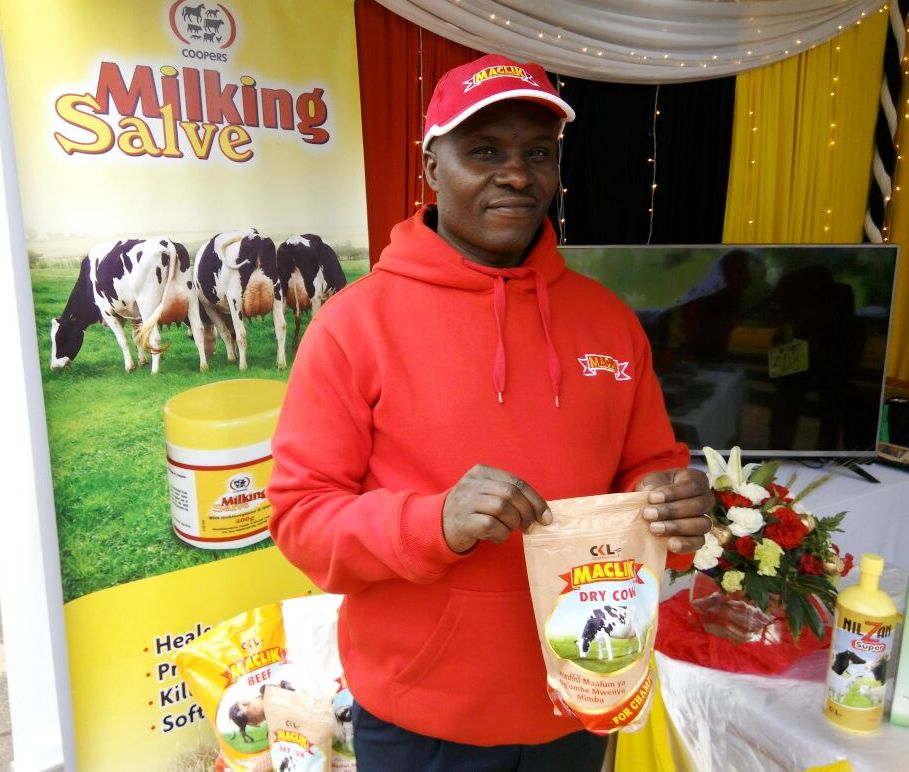Farmers who feed dry dairy animals with mineral nutrients boosting salts curb after parturition diseases such as downers and milk fever besides boosting milk yields and having healthy calves and mothers.
According to a 2006 research by Abuom Okumu on periparturient conditions in smallholder dairy cattle herds in Kikuyu, Kiambu it was revealed that most animals (66.99 per cent), developed at least one of the periparturient conditions under study.
The most common conditions encountered were retained placenta (28. 16 per cent), dystocia (13.59 per cent) and milk fever (11.16 per cent,) while the least common were ketosis, cystic ovarian disease and uterine torsion all with an incidence of 0.49 per cent.
Coopers Kenya Limited animal and crop officer Joseph Karanja said the future productivity of an in-calf cow depends on the minerals feeding rations and mineral supplementation in the two drying months ahead of parturition.
“The calf is growing rapidly from the seventh to the ninth months of pregnancy. The cow is sharing crucial minerals like calcium, sodium chloride and phosphorus with the calf. These minerals have to be replenished for a healthy mother and calf after the gestation period,” said Dr. Karanja, who heads the agribusiness sector of the company.
Related content
Wet Salting Technology improves quality of hides and skins
Vitamark Joto livestock salt boosts estrus rate in dairy cows
Murang’a farmer feeds cows with yeast, improves milk production by up to three litres a day

Coopers Kenya Limited animal health expert Dr Joseph Karanja holds the company's recently launched mineral salt supplement for dry cows.He said mineral supplement is key for healthy cows and calves.
Downer cow is a condition of the cattle lying down doe to mineral deficiency. It is unable to get up or if manages, it does so with a lot of difficulty. It is a common show of weak bones resulting from deficiency of calcium, phosphorus and other essential minerals.
Besides the calcium and phosphorus being used in the formation of the bones of the calf, the minerals are also drawn from the rest of the body to the mammary glands for the formation of colostrum milk.
“The deficiency predisposes the cow to milk fever and hypocalcemia, which lead to a coma and death if no treatment is administered,” said Dr. Karanja
Other minerals are also important in supporting the overall health of the mother and the calf in the two dry months, when the cow is not being milked.
Milk fever is characterised by loss of appetite, shuffling of hind feet, dullness, cold ears and dry nose, apparent loss of coordination of limbs during walking, temperature fluctuation between 35.6 degrees Celsius to 37.7 degrees Celsius, and the heart beat may go past 100, instead of the usual 48 to 84.
With loss of appetite, milk yields drop drastically and the cow losses consciousness before slipping into a coma and death.
Various minerals supplements are available in agro-shops.
Two years ago, Coopers launched a Maclick Dry Cow salt, which contains 23 per cent sodium chloride, five per cent calcium, nine per cent phosphorus, 14 per cent manganese, among other elements.
Other essential minerals in the salt are copper, manganese, zinc, cobalt, selenium, molybdenum, among others.
Dr Karanja can be reached on +254722880274.
















Comments powered by CComment